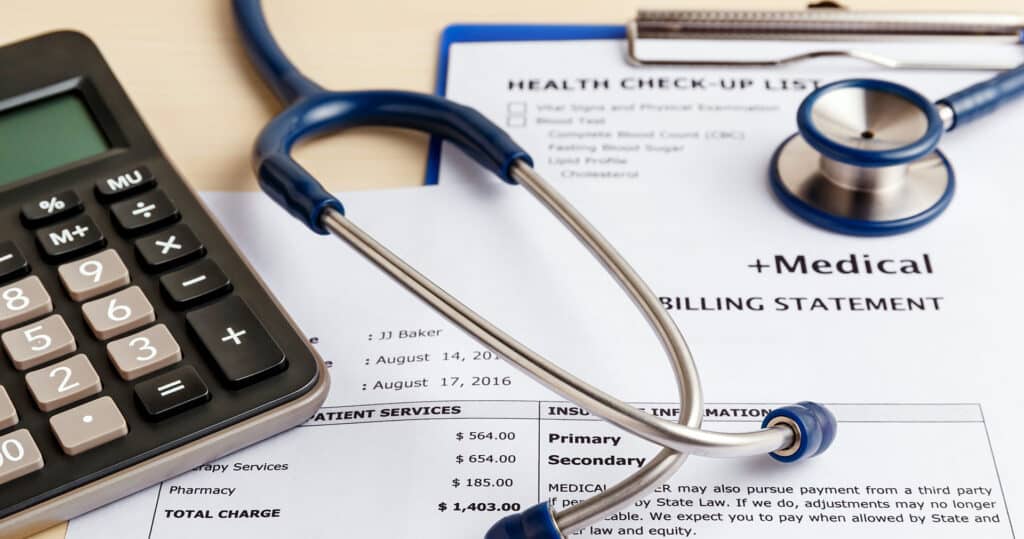In recent years, healthcare practices across the country have accelerated their digital transformation efforts to modernize their operations, bake more efficiency into their workflows and processes, and deliver stronger patient experiences. While this digital evolution is a good and necessary thing, it also exposes practices to some significant challenges. As more of our healthcare processes transition to digital formats, providers need to be vigilant about security threats in healthcare.
Unfortunately, healthcare practices are a popular target for hackers. In fact, one recent study found that the healthcare industry is currently experiencing more breaches than any other sector.
With ransomware on the rise and cyber attackers growing both more confident and more aggressive in their efforts, healthcare practices need to do everything within their power to enhance healthcare data security and prevent bad actors from compromising their data.
This article will outline five of the top threats to healthcare data security, and outline the right tools to empower providers to protect both their important business data and their patients’ PHI (Protected Health Information).
Healthcare Data Security Threats
As you begin thinking about what you can do to improve your practice’s security posture, keep these tips in mind. They will help you reduce the likelihood your practice is a victim of a breach, much to the delight of your patients, your employees, and your bottom line.
1) Mobile Data Access

Mobile data access has revolutionized how providers are able to work with their patients, allowing physicians to access key information on the go, improve their clinical decision-making, and update patient charts in real time. Yet for all these benefits, mobile data access also poses a serious healthcare data security threat, as unsecure mobile devices can fall prey to cybersecurity hackers and data loss.
To mitigate these threats, it’s essential to choose a software vendor who will help you protect your mobile healthcare data. This means using encrypted software that is only accessible by approved individuals on your team and ensuring that your mobile solution meets HIPAA requirements regarding data privacy. Remember, using your mobile device to manage your practice or work with patients is convenient, but without a secure software solution it poses a serious threat to your data security.
2) Ransomware
Ransomware is one of the most common data security threats both in and out of the healthcare industry. Ransomware is a type of software that blocks access to a computer or collection of files until a ransom is paid. Thousands of hospitals have fallen victim to this in recent years, with the average healthcare breach costing over $9 million.
Frequent data back-ups using a cloud-based system will help mitigate damage in the event of a ransomware breach, as you’ll be less likely to lose access to the most recent versions of your data. However, you’ll still have to deal with the fallout of your patients’ PHI potentially being leaked. That makes prevention the best approach to dealing with ransomware attacks. Preventing ransomware attacks and other breaches is a matter of cybersecurity, which means investing in your IT department, updating your software to latest versions, and training your employees to recognize phishing emails and other attempts at breaching your system—among other healthcare cybersecurity measures.
3) Other Outside Threats
Ransomware isn’t the only outside threat a healthcare provider has to protect against. Digital medicine is a prominent part of the healthcare landscape, and as such it attracts a high number of cyberattacks and other outside threats. Providers who lack secure, encrypted, and frequently maintained software are a vulnerable target for hackers in search of personal or financial data.
The issue with most traditional health practice technology is that they are not equipped with enough safety measures. Cloud-based solutions enable providers and their vendors to work against outside threats, making it significantly more difficult for attackers to access your protected data. The same preventative measures that protect against ransomware attacks will help to thwart other outside threats as well, making your practice more secure.
4) Lack of Security Education/Procedure
Unauthorized access or disclosure is the second-most common cause of data breaches in healthcare, behind malicious hacking attacks. If your staff is not well trained in the procedures and steps it takes to protect your data, it puts your practice at risk. Every practice should have a set security procedure in place, starting with in-depth training from your partnered software vendor on how to use their technology for optimized protection.
If your team doesn’t understand the importance of security and doesn’t know how to properly use technology, your practice is much more likely to be impacted by a breach. To improve healthcare data security, be sure to regularly train your team about security protocols and evolving healthcare standards. Even if nothing changes from year to year, a quick refresher can go a long way toward reinforcing policies and reminding employees about how important this is.
You also need to train your staff on the software they’ll be using. When you partner with the right vendor, you’ll have access to a training specialist who can provide custom, one-on-one training sessions. Since training has a huge impact on adoption and ROI, it’s important to look for a vendor that provides training support.
5) Poor Software Security Measures
Along with data encryption and automatic backups, there are additional software security measures your vendors should be implementing to minimize the risk of healthcare data security threats. One of the easiest ways to protect patient privacy while maintaining HIPAA compliance is by investing in purpose-built practice management solutions that were designed with security and compliance in mind.
For example, today’s leading cloud-based health practice technology gives you the peace of mind that comes with knowing your sensitive patient data is stored securely on the trusted vendor’s infrastructure. Furthermore, the right solution will ensure data is encrypted so that even if bad actors are able to infiltrate your systems, they won’t be able to make sense of the data.
When you invest in cloud-based solutions, you get the added benefit of software that is continuously updated with new security features, further strengthening your healthcare data security posture. These measures include password protection and automatic logoffs, so an unattended computer no longer represents easy access for an unauthorized user.
Look for a solution that offers monitored use and restricted access controls, which allow you to set granular permissions for what a user can and cannot do with the data on your system. It’s one thing to have a great software solution serving as the foundation of your practice—it’s quite another to ensure that only authorized individuals can access it.
As you begin implementing secure solutions, you need to enact strict access controls that prevent unauthorized individuals from using the software. Consider embracing the principle of least privilege, giving your users the minimum permissions they need to do their job. This makes it significantly harder for users to access or change data they’re not supposed to.
Healthcare Data Security is an Ongoing Practice

Once you have a solid security framework in place, your work is just beginning. As the healthcare data landscape continues to evolve, practices need to keep pace by regularly auditing their systems, policies, and procedures to make sure everything is up to date and working properly.
When you invest in the right health practice management and EHR security solutions, the vendor will take care of a lot of this for you. Still, best practices call for practice managers to continuously monitor security to keep patient data private and confidential.
Read more articles about healthcare data security and medical practice billing on our blog. If you’re ready to see how CMD can help your practice better protect its sensitive data, schedule a demo today!




